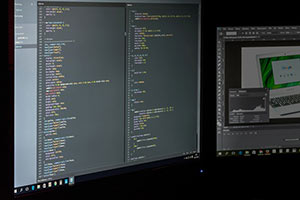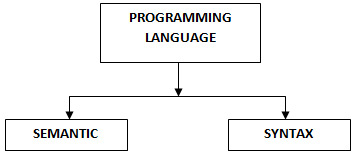Top 4 Programming Languages for Website Development
Websites have become the most reliable business partners for entrepreneurs as well as professional businessmen. In this blog, I’m going to walk you through top 4 programming languages that are used for a website development.
Generally, it is said a machine was programmed. Similarly, while developing a website; it will be programmed to perform certain actions. Choosing the right programming language among the best has become quite necessary as things have moved beyond simple static websites.
A Quick overview of a Programming Language
Syntax – Symbolic Representation
Syntax defines the process, where symbols are combined to form a well-formed structure of expressions in the programming languages.
Semantic- Meaning
The semantic part defines/describes the behavior of the programming languages. The meaning of syntactically valid strings is defined by the semantics.
Attributes of a Programming Language
- Abstractions
- Abstractions help in decoupling the software elements and reduce code duplication during website development. Programmers through the process of abstraction that encompasses encapsulation and data hiding can reduce the complexity and increase the efficiency of the programs.
- Function & Target
- A program written in a high-level language cannot be executed until it’s been compiled to internal machine level language.
- High-level languages are easily readable. But systems perform computation process and they cannot interpret these languages, and hence has to be translated into machine languages through a compiler.
- Expressive Power
- Programming languages are mostly defined on how they express the process of computations, which denotes their expressive power.
Most Used Programming Languages
- PHP
- A widely used general-purpose server-scripting programming language, PHP makes a perfect choice for the development of highly-functional websites.
- Originally referred as a personal home page, PHP now stands for hypertext processor. PHP is the preferred programming language for website development, especially server-side programming as repetitive server-tasks can be easily performed.
- Some of the best content management systems and e-commerce platforms are written in PHP. Joomla, WordPress, Drupal, and Magento, all come under the list.
- – It’s an open-source language.
- – Compatible with major OS (UNIX, Mac, LINUX, and Windows)
- – Perfect for developing dynamic websites and web applications. (has good interface with Apache and MySQL)
- Java
- A highly-scalable programming language, Java utilizes MVC (model view controller) model frameworks. Also, it is easy to learn and is considered one of the simplest programming languages as the syntax is strongly influenced by C/C++.
- Why use Java?
- – WORA (Write Once, Run Anywhere): The word ‘anywhere’ signifies all those operating systems, which are integrated with Java.
- – Provides Java Native Interface.
- – Comes with automatic memory management feature.
- – It is dynamic as well as extensible.
- – Also, it is object-oriented, multithreaded, platform independent, architecture neutral, secure, portable, interpreted, and much more.
- Python
- A dynamic programming language, Python is object-oriented, interpreted, and comes with high-level data structures. A powerful programming language, Python makes a perfect choice for building highly-functional websites due to its extensible features. Yahoo Maps, Shopzilla, Google, are some the popular brands that have embraced Python.
- Why for website development?
- – Includes powerful tools, standard libraries, and a wide range of third-party modules.
- – Supports interface with multiple databases.
- – (WSGI) Web Server Gateway Interface makes it easier to build frameworks in lesser time.
- JavaScript
- A commonly used programming language for making websites dynamic, JavaScript is easy to learn, test as well as debug. Originally referred as LiveScript, JavaScript is often confused with Java programming language.
- Why JavaScript for website development?
- – It is highly functional and easy to learn.
- – It is an interpreter based scripting language.
- – It is easier to validate input forms on the client side.
- – Supports extensive code reusability and most of the object-oriented concepts.





 +91 8277203000
+91 8277203000
